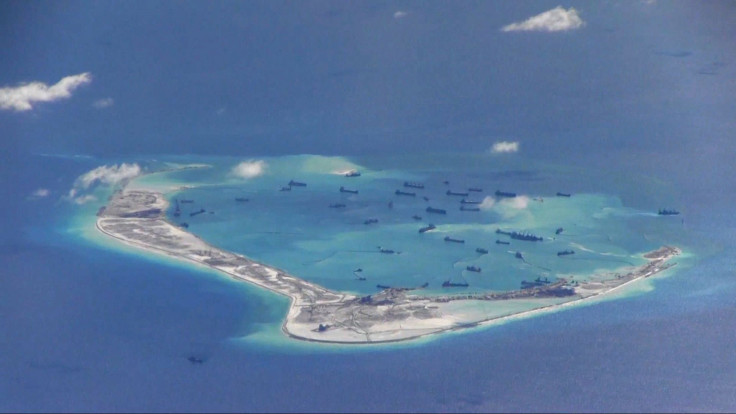China's South China Sea Island-Building Undermines Regional Security: US Defense Secretary

U.S. Defense Secretary Ash Carter warned on Saturday that China's island-building in the disputed areas of the South China Sea was undermining regional security, and called for a diplomatic solution to what has become an increasingly militarized dispute.
Addressing a gathering of senior defense officials from Asian nations, Carter said the U.S. was "deeply concerned" about the extent of China's land reclamation activities in the region.
"China has reclaimed over 2,000 acres, more than all other claimants combined ... and China did so in only the last 18 months," Carter told the Shangri-La Dialogue security forum in Singapore, according to Reuters. "It is unclear how much farther China will go."
Carter's comments as a senior U.S. defense official acknowledged that China had installed mobile artillery systems on the Spratly Islands, a development that Republican Sen. John McCain called "disturbing and escalatory," according to a separate Reuters report.
U.S. officials said they first detected the artillery pieces on an island about a month ago. “We’ve been aware of these for a little while,” a senior U.S. official told the Wall Street Journal.
China has been reclaiming land on the Spratly Islands in the South China Sea for over a year, in a bid to support its sweeping maritime territorial claims in the region. The country's so-called nine-dash line effectively claims most of the resource-rich ocean as Chinese territory.
Land reclamation projects carried out by China, and other nations in the region, are seen as an attempt to bolster the legitimacy of their territorial claims. The U.S. has said that the practice undermines international law.
The U.S. has been flying surveillance planes over the disputed region to publicly illustrate that it views the area as international waters rather than sovereign territory.
This has led to an increasing number of confrontations with Chinese military, all of which have so far been non-violent. There are concerns, however, that clashes could occur, as China seeks to establish itself as the region's leading military power, and the U.S. seeks to bolster its influence in the region.
© Copyright IBTimes 2025. All rights reserved.






















